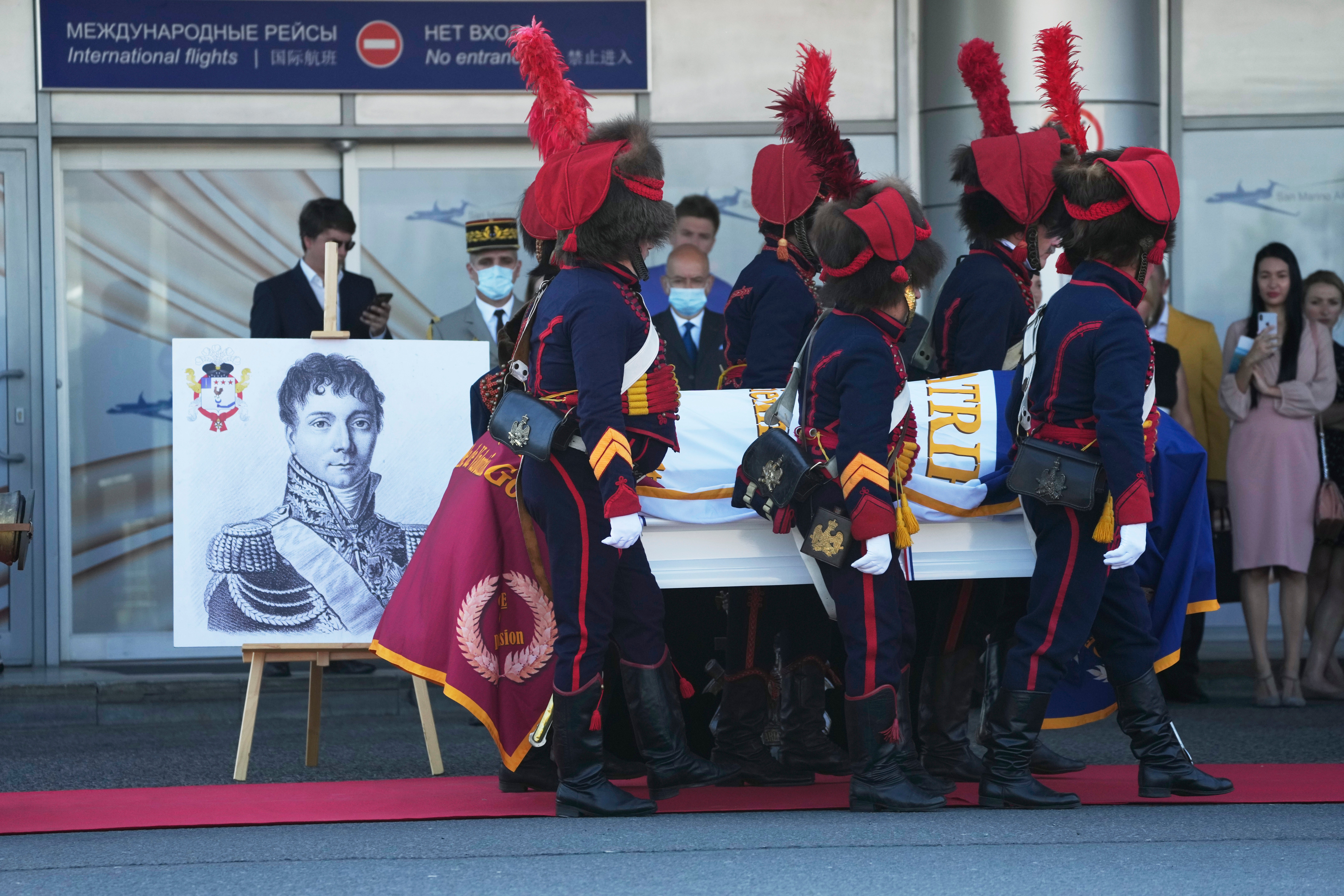Russia returns remains of Napoleon-era general to France
Russia has repatriated the remains of one of Napoleon's most trusted generals that were discovered two years ago in the country

Russia on Tuesday repatriated the remains of one of Napoleon s most trusted generals after their discovery in the country two years ago.
The coffin with the skeleton of Charles-Etienne Gudin, one of Napoleon's closest allies, was brought to the entrance of the Moscow Vnukovo airport building on a horse-drawn cart accompanied by men in 19th century French military uniform.
Gudin died in 1812 during the French warrior-emperor's invasion of Russia. The 44-year-old general was hit by a cannonball near Smolensk, a city 370 kilometers (229 miles) west of Moscow. He died of gangrene three days after his leg was amputated.
The general's remains were found in Smolensk in July 2019 by a team of French and Russian archaeologists, according to Pierre Malinowski, president of the Foundation for the Development of Russian-French Historical Initiatives.
“Gudin represents a reconciliation between France and Russia, because Gudin was a Russian enemy in 1812. He came to attack Russia. Now, when Russia honours him and gives (the remains) to France, it’s the biggest symbol of reconciliation between our two countries," Malinowski told reporters at the ceremony at the Vnukovo airport.
Bookmark popover
Removed from bookmarks